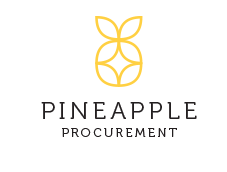Procurement During a Pandemic: Checking In With Jackie Wright of Pineapple Procurement
Written by: Christine Killion | LODGING | January 22, 2021 | Read on LODGING
The COVID-19 pandemic has had a profound impact on the hospitality industry, particularly the ways in which hotel spaces—from the guestroom to the boardroom—are designed and set up to function. Jackie Wright, founder and principal of Pineapple Procurement, a furniture, fixtures, and equipment (FF&E) company specializing in high-profile hospitality projects, works closely with interior design firms on luxury to upper-midscale renovations, conversions, adaptive reuse, and historic projects operated by major brands and independent boutique owners. Wright shared with LODGING what hotel design trends she expects to see in the year ahead, the pandemic’s effects on procurement, and how these developments have impacted her approach.
What are the biggest hotel design trends you’re seeing right now? Do you expect those to continue in the year ahead and beyond?
The biggest trends we are seeing right now are focused on flexibility and outdoor space. We continue to see the need for guestrooms to be a flexible space that guests can use as a place to relax, dine/eat, have small meetings, work remotely, and workout. We’ve also seen a greater focus on pet-friendly spaces and amenities—guests can request dog beds, etc. Hotels continue to use meeting rooms in more flexible and functional ways such as private work-out rooms, private dining rooms, Zoom rooms, podcast rooms, and small-group meetings. Outdoor spaces have started to include more small group seating areas with smaller, lighter furniture that is easier for hotel operations to move around according to the needs of the property or guests. We expect to see these trends continue in the years ahead.
What are some ways you’ve seen the pandemic impacting procurement?
Lead times and freight costs for both ocean and ground have increased, exponentially in some cases, due to the global container shortage, port congestion, and overall demand.
It’s more important than ever before to understand the impacts in order to create a proactive strategy that protects against costly delays and unexpected budget increases.
What should hoteliers and designers be keeping in mind right now when procuring FF&E?
Start as early as possible and onboard your procurement team at the same time as your interior design team—or sooner—so that you can strategize as a team on how best to achieve the project schedule goals. Hiring your procurement firm at the same time as your design team should not cost more if the procurement fee is based on the scope of work. Look for a procurement team that has a transparent and collaborative vendor selection process. Always ensure your procurement team will provide you with a procurement schedule at the onset. Your procurement team should also compare vendor freight costs, terms, country of origin, materials, and ability to meet delivery dates in great depth before making a final decision and they should include you in the final decision-making process.
Keep your design firm and your procurement firm separate. You are more likely to keep costs down and service levels up when each party is dedicated to doing the roles they do best.
When placing model room orders, review the same big-ticket items from at least two different vendors. This will give you an opportunity to get a true comparison and be confident in your decision. Evaluating the reliability, quality, customer service, assembly, and overall execution of each vendor in the model room will save invaluable time and money upfront. Prototypes can be credited back to the production order, so the big picture costs are nominal.
What’s your outlook for the hospitality industry in 2021?
I think the road to a full recovery stretches well beyond 2021, however, this year will be a big improvement over last. Everyone is eager to move forward and we’ve seen a big push to complete renovations with plans for grand reopenings in the summer and fall.
Is there anything you learned during the past year that will inform your approach in the future?
In 2020, we started working with more domestic vendors to help reduce lead times on projects with aggressive timelines. We were pleasantly surprised to learn that, in many cases, they were very competitive on pricing as compared to vendors overseas. The overall experience and quality was excellent and we plan to continue to expand our vendor directory to include more domestic manufacturers.
